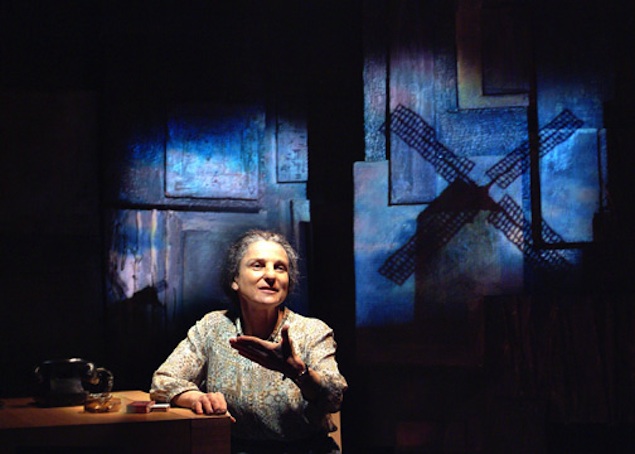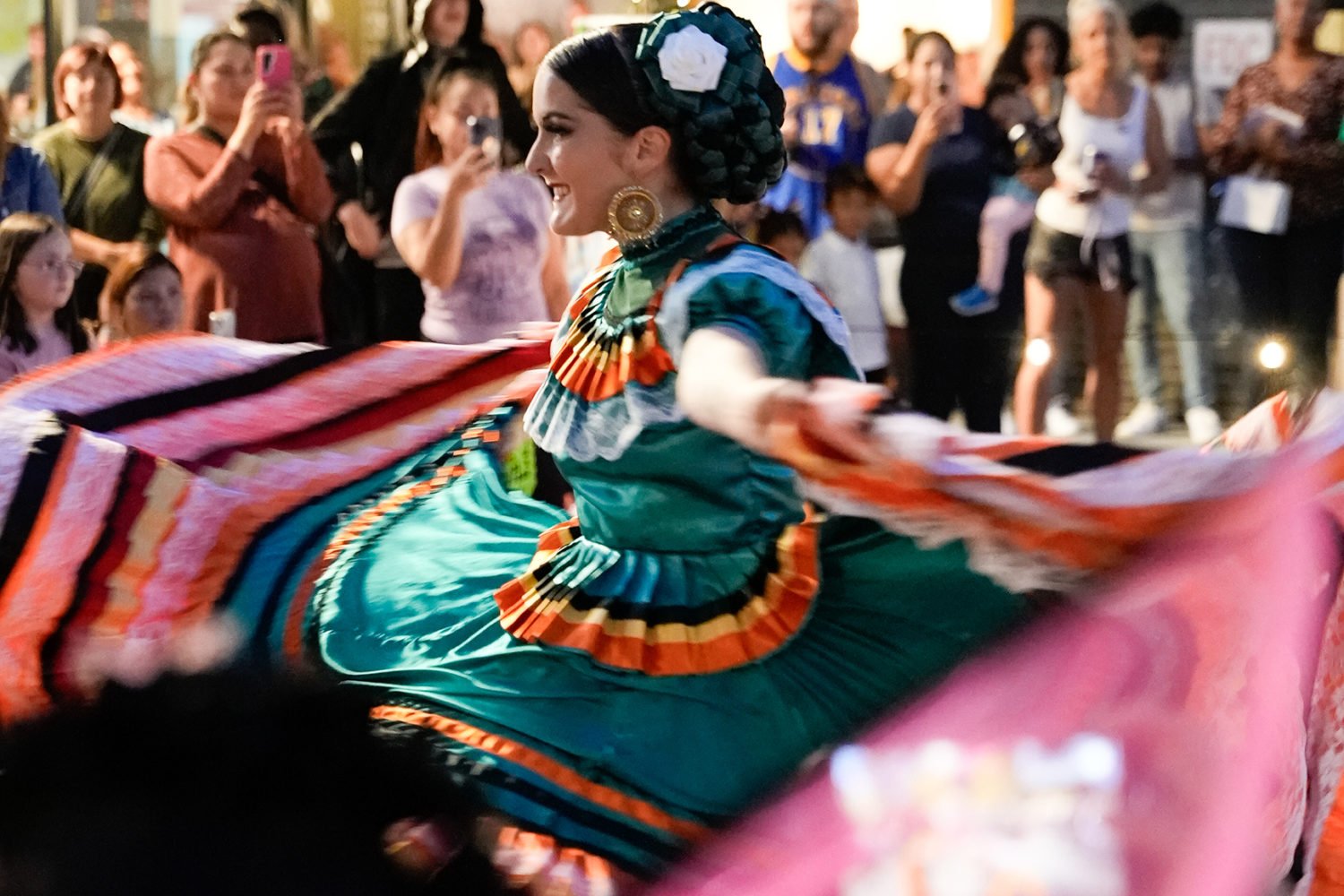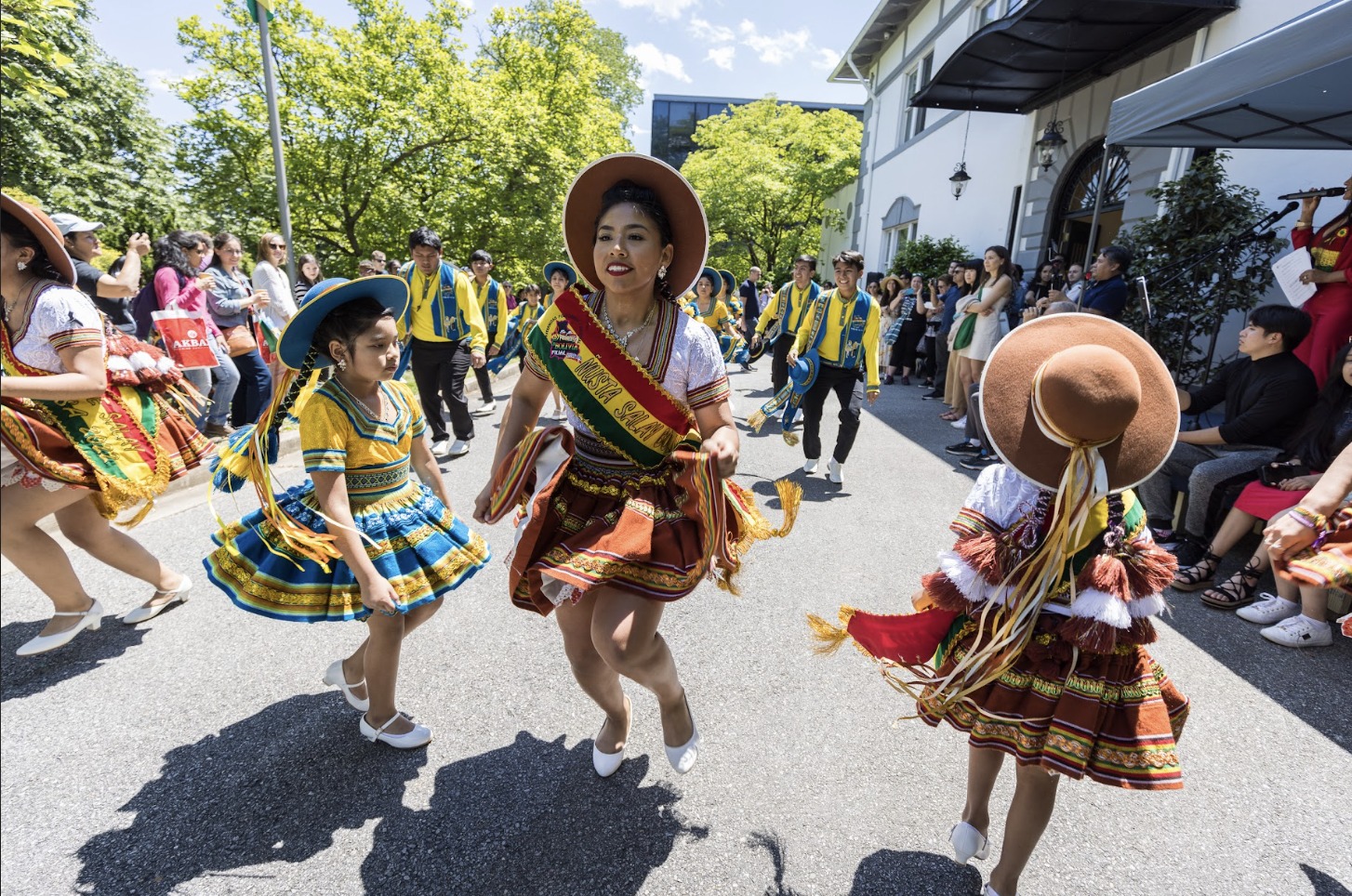The lights go up on Golda’s Balcony to reveal an elderly and sick Golda Meir (she died in 1978) seated at a table on her balcony. In a dumpy bathrobe, the former prime minister of Israel chain-smokes and remembers her life and how it intertwined so closely with the life of the Jewish state. With her stockings lumped up to imply veins bulging with phlebitis, her wig a wispy gray, and her prosthetic nose slightly bulbous, actress Tovah Feldshuh holds the Theater J stage and her audience in a nearly hypnotic grip. Here is no traditional “Yiddishe mama” proffering chicken soup.
Feldshuh originated the role of Golda Meir in dramatist William Gibson’s solo piece in 2003, when it ran on Broadway for a little over a year, and for which she received a Drama Desk Award and one of her multiple Tony Award nominations. She still tours occasionally in a show for which she clearly has a deep proprietary love. On opening night, the actress spoke of how she wanted to bring the show to Washington as part of the Jewish-themed Theater J’s Voices From a Changing Middle East Festival. (Feldshuh appeared on Broadway earlier this year in the revival of Pippin.)
Golda Meir served as prime minister of Israel from 1969 through ’74, a period that included one of that country’s greatest crises: the 1973 Yom Kippur War. The play, occasionally jingoistic but mostly a fascinating character study, imagines how Meir and her cabinet agonized over whether to arm and perhaps even use Israel’s nuclear weapons when, with American aid not immediately forthcoming, defeat looked imminent. “What happens,” she asks, “when idealism becomes power?”
Gibson’s script lets this existential conundrum build up steam in a way that lends the piece much of its tension, as do startling sounds of explosions, planes, and gunfire. But Gibson’s script and Feldshuh’s chameleon-like performance assemble not only the central bricks of Meir’s life, but the mortar, too, making Golda’s Balcony one of the more theatrically fulfilling solo shows.
Whatever one’s views about the roiling Middle East may be, this is a portrait of an incredibly strong, smart, flawed woman who felt driven to play an historic role. It shows how Meir tried and failed to balance husband, children, and home with a calling she could not shirk.
So Feldshuh shrugs off the thick robe to reveal an iconically shlumpy skirt and jacket—the prime minister’s uniform. Then, with a scarf or other minor props, Feldshuh metamorphoses into Golda’s five-year-old self, witnessing a pogrom (an anti-Jewish riot) in Kiev in 1903. She travels to her later childhood in Milwaukee after her family emigrated there; to her introduction and deep identification with Zionism as a teen; and to her romance with and marriage to Morris Myerson, and their move to Palestine in 1921. They lived on a kibbutz (a collective farm) at first, which Morris hated. Golda’s involvement in the movement to create a Jewish state, and in the government that formed in 1948, eventually wrecked their marriage. Zionism was never a soul-stirring imperative to Morris, and as a younger wife, her alienation from him led to affairs with other men.
Feldshuh doesn’t only morph between Golda Meir’s childhood, young-adult, middle-aged, and older selves. She also takes on the personas of American Secretary of State Henry Kissinger, Israeli Defense Minister Moshe Dayan and even Pope Paul VI, among others, in their ongoing discussions with her.
The result is a strikingly full-blooded portrait that unfurls upon a sparsely decorated stage against a backdrop on which projections appear, sometimes abstractions, sometimes images of people and places. Often most moving are Golda’s digressions, as when she recollects visiting Cyprus, where thousands of Jews fleeing Europe for Palestine after World War II were held prisoner; and when, as the new state’s diplomatic representative to the Soviet Union, she and her legation drew a huge crowd of Soviet Jewry, who had to practice their religion in secret, and told them they were not forgotten.
Older theatergoers may recall Ann Bancroft playing Golda Meir on Broadway, too, but that was in a 1977 play, also by Gibson (who died in 2008), in whose The Miracle Worker Bancroft had become a star. The shorter-lived Golda was a multi-character drama with a full cast.
Golda’s Balcony is a multi-character drama, too, but with one shape-shifting actress named Tovah Feldshuh embodying a whole world.
Golda’s Balcony is at Theater J through April 27. Running time is about 90 minutes, with no intermission. Tickets ($30 to $75) are available via Theater J’s website.


















